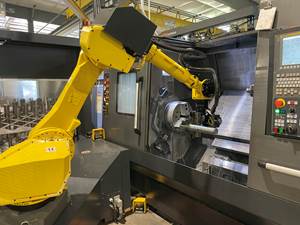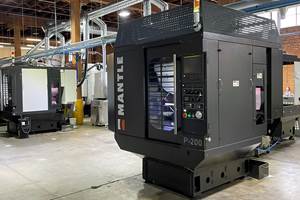How I Made It: Dennis Rymanowski
Dennis Rymanowski has worked at NSH USA for 60 years, with his passion for manufacturing living alongside his passion for his family’s polka band.
When I started at Simmons, I wasn't sure if it was a summer job or it was a permanent gig. For the first part of my job, I was basically their clerk. It was actually a good learning tool because I would eventually have to use those files to fulfill the parts orders and inquiries. Eventually we had two part specialists that handled all the inquiries and processed any orders that came in, and they helped me learn that part of the job. I benefited from working with them because that time unlocked all the resources that I would need.
Some of the parts we needed came from designs that went back as far as 1898, so obviously some of the systems to find stuff were different then. So I would work with part specialists, and I would pull drawings, file the drawings, run the blueprints back. And as I was doing that, I was actually learning the parts business because I was exposed to the vernacular, the parts, the names and use of the items. I knew exactly what they were talking about when I discussed it with a customer, and I was fortunate to be mentored this way.
Once I moved on to the part specialist role, I learned costing and estimating. I took a mechanical drawing class and became a detailer for a Niles engineer. I stayed in engineering for a period of time, then came down to the parts office, entering orders and quoting. Eventually, I moved to sales. And the whole time I was in the band and doing the radio show.
Our polka band started in 1948 as the Rymanowski Brothers, with my dad and my uncle in the lead. We played Polish-style polka right up until 2019 when the jobs dried up. I started out playing clarinet, but when I left the Navy in 1968 I asked my dad how the band was doing. He said, “Actually, I just booked a job for New Year’s Eve, and we need a drummer. You’re it.” I didn’t know anything about drumming, so I went to a lot of shows and watched the drummers. There was a period of time when my uncle dropped out, so I moved to clarinet and sometimes saxophone.
I stayed with the band the whole time I was working in the industry. There were never really any conflicts because we did weekend gigs and private parties. Sometimes we would book work in the Catskills or weddings, but it never interfered with work.
The radio show with my brother began in the ‘70s at Siena College. Eventually, the various hosts moved on and we were recommended as possible replacements. Siena College approached us and in the spring of 1989 we took over the “polka slot” which became the Polka Spotlight aired on Sundays with the Rymanowski brothers.
The thing that people don't realize when you do a show like that is you have to have a library. You can't spin the same six LPs every week to fill the three-hour show. My brother was always collecting records, so he had probably upwards of 1,400 polka albums. Now, we’ve been doing that 35 years straight, every Sunday from 9:00 to noon on WVCR.
I don’t know how much longer we’ll keep doing it, but whatever happens we’ll continue on as the Rymanowski brothers always have.
Related Content
Same Headcount, Double the Sales: Successful Job Shop Automation
Doubling sales requires more than just robots. Pro Products’ staff works in tandem with robots, performing inspection and other value-added activities.
Read MoreThe Power of Practical Demonstrations and Projects
Practical work has served Bridgerland Technical College both in preparing its current students for manufacturing jobs and in appealing to new generations of potential machinists.
Read MoreIn Moldmaking, Mantle Process Addresses Lead Time and Talent Pool
A new process delivered through what looks like a standard machining center promises to streamline machining of injection mold cores and cavities and even answer the declining availability of toolmakers.
Read MoreWorkholding Fixtures Save Over 4,500 Hours of Labor Annually
All World Machinery Supply designs each fixture to minimize the number of operations, resulting in reduced handling and idle spindle time.
Read MoreRead Next
Rego-Fix’s Center for Machining Excellence Promotes Collaboration
The new space includes a showroom, office spaces and an auditorium that will enhance its work with its technical partners.
Read MoreRegistration Now Open for the Precision Machining Technology Show (PMTS) 2025
The precision machining industry’s premier event returns to Cleveland, OH, April 1-3.
Read MoreThe Future of High Feed Milling in Modern Manufacturing
Achieve higher metal removal rates and enhanced predictability with ISCAR’s advanced high-feed milling tools — optimized for today’s competitive global market.
Read More















.jpg;maxWidth=300;quality=90)











